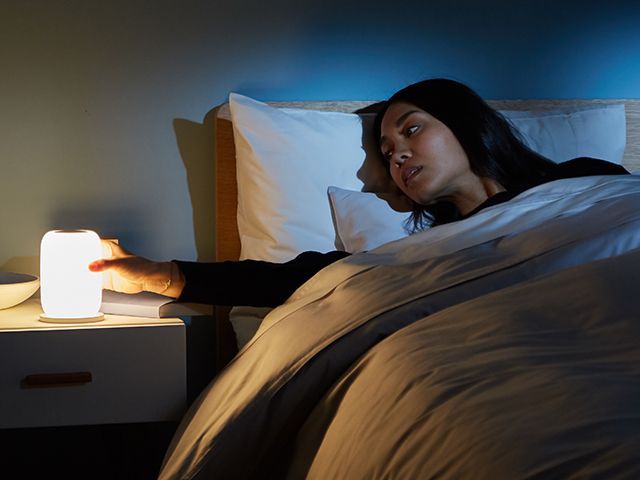

Relationship Between Sleep and Memory
In the hustle and bustle of our modern lives, sleep often takes a backseat to our relentless pursuit of productivity. We cut our slumber short, caffeinate ourselves into wakefulness, and soldier on, believing that sacrificing sleep is a small price to pay for success. However, science has repeatedly shown that sleep is not a negotiable commodity. It’s a critical factor in our physical and mental well-being, with one of its most intriguing connections being to our memory. In this article, we’ll delve into the fascinating relationship between sleep and memory, uncovering the secrets that lie within our dreams.
The Science of Sleep
Before we dive into the intricate web of sleep and memory, let’s understand the basics of sleep itself. Sleep is a complex physiological process that can be divided into two main stages: Rapid Eye Movement (REM) sleep and Non-Rapid Eye Movement (NREM) sleep. Throughout the night, our bodies cycle through these stages, each playing a unique role in our physical and mental restoration.
During NREM sleep, our body heals and repairs itself. It’s the time when our muscles recover, and our immune system strengthens. While these processes are crucial, it’s the REM sleep that’s particularly interesting when it comes to memory.
The Memory Consolidation Connection
One of the most vital functions of sleep is memory consolidation. This process, which primarily occurs during REM sleep, is like a mental filing system, organizing and strengthening the memories we’ve formed throughout the day.
Here’s how it works: When we learn something new, whether it’s a fact, a skill, or an experience, our brain encodes that information. However, these new memories are initially fragile and easily forgotten. It’s during sleep, particularly REM sleep, that our brain reactivates these memory traces, helping to consolidate and integrate them into our existing knowledge network.
Think of it as a librarian cataloging books in a library. During the day, you collect books (memories), but it’s during the night that the librarian (your brain) arranges them neatly on the shelves (consolidates memories). This process is essential for learning and retaining new information.
The Sleep Cycles and Memory
As mentioned earlier, sleep is a cyclical process with alternating REM and NREM stages. This cyclical nature is vital for memory consolidation. Each cycle typically lasts around 90 minutes, and as the night progresses, the proportion of REM sleep increases.
Studies have shown that the final REM cycle of the night, just before waking up, is particularly crucial for memory consolidation. This means that if you cut your sleep short or have a disrupted sleep pattern, you may be depriving yourself of this essential memory-boosting phase.
Sleep Deprivation and Memory Impairment
Now that we understand the positive effects of sleep on memory, it’s crucial to highlight the detrimental impact of sleep deprivation. When you consistently fail to get enough sleep, your brain doesn’t have adequate time to consolidate memories properly. As a result, you may experience memory lapses, forgetfulness, and difficulty in learning new information.
Moreover, chronic sleep deprivation has been linked to more severe cognitive issues, including an increased risk of neurodegenerative diseases like Alzheimer’s. This underscores the critical importance of prioritizing sleep for the long-term health of your brain.

Tips for Enhancing Sleep and Memory
Now that we recognize the profound connection between sleep and memory, it’s time to take action to optimize both. Here are some tips to help you get the most out of your nightly slumber:
- Establish a Consistent Sleep Schedule: Try to go to bed and wake up at the same time every day, even on weekends. This helps regulate your body’s internal clock, enhancing the quality of your sleep.
- Create a Relaxing Bedtime Routine: Engage in calming activities before bedtime, such as reading, meditating, or taking a warm bath. Avoid stimulating activities like using electronic devices, as the blue light can interfere with your sleep.
- Design a Comfortable Sleep Environment: Ensure your bedroom is conducive to sleep by keeping it dark, quiet, and at a comfortable temperature.
- Limit Caffeine and Alcohol: Reduce your consumption of caffeine and alcohol, especially in the hours leading up to bedtime. These substances can disrupt your sleep patterns.
- Exercise Regularly: Engage in regular physical activity, but avoid strenuous exercise close to bedtime, as it can be stimulating.
- Seek Professional Help: If you have chronic sleep problems or suspect a sleep disorder, consult a healthcare professional for guidance and treatment.
- Prioritize Sleep: Recognize that sleep is a critical component of overall health and well-being. Make it a priority in your life, just as you would with exercise and nutrition.
Conclusion
In the intricate dance between sleep and memory, we find the key to unlocking our cognitive potential. Sleep is not merely a passive state of rest but an active process that nourishes and fortifies our memories. By prioritizing healthy sleep habits, we can harness the power of our dreams to enhance our memory, cognitive abilities, and overall quality of life.
So, the next time you’re tempted to burn the midnight oil or sacrifice sleep for productivity, remember that your memory is at stake. Prioritize your well-deserved rest, and you’ll find that your memory, along with your overall health, will thank you. If you need any additional tips and ideas about using sleeping pills, check out their page to find more info.












